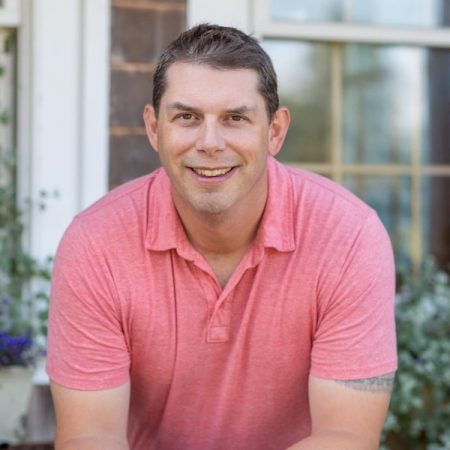
Husband. Father to two young daughters. Freelance journalist with a busy public relations business. Man with a jam-packed life. Who wouldn’t be tired at the end of the day? Only Trevor Maxwell was tired all the time and it kept getting worse. To the point that after hauling just one bin of wood his heart would be pounding and he would be exhausted. That shouldn’t happen when you’re a strapping 41-year-old, especially one who’s used to hauling big bins of wood for hours with no trouble whatsoever. And then he started feeling winded just walking up the steps.
He finally decided to call his doctor who ordered a blood test that showed he was severely anemic. One of the possible causes is bleeding somewhere in the intestinal tract, so a colonoscopy was ordered. And that’s when life as Trevor and his family had known it came to a screeching halt. The date was March 22, 2018.
After the colonoscopy, I kind of came to from the haze of the fentanyl and you could just see the look on the doctor’s face. He said you have a very large mass in your ascending colon. It’s probably about four inches long and at least a couple inches wide, so I’m going to need to refer you to a surgical oncologist so that you can deal with this. I was listening to these words, but he didn’t say THE word. And I said, so mass, oncologists, you’re saying I have cancer? And he said, well, until the pathology comes back, I can’t say for sure, but I’m 99% sure that you have colon cancer.
Trevor Maxwell
The only symptom Trevor had experienced was extreme fatigue. When I asked him if he’d noticed any changes in his bowel habits or if his stools were narrower than usual he said no. He explained that he had what is known as an apple core tumor. It grew from the inside and was nearing the point where it seemed about to burst through the intestinal wall, but fortunately, it hadn’t yet. Waste products were making it through because the mass was hollowed out in the middle and anything that passed through was still pretty much in a liquid state. That’s because the tumor formed in the beginning section of his colon (ascending) and at that point, stools haven’t been formed yet.
Because of its location and that it was contained, the surgeon was able to remove the mass and about 20 inches of his ascending colon and then reconnect the remaining ends of his colon. (Imagine cutting out a section of a hose and then rejoining the two ends.) It’s called colon resection and it was done laparoscopically and with no need for a colostomy. If that sounds like a fairly simple procedure, all that followed was anything but. Further testing showed that Trevor had a small metastatic lesion on his liver.
So that meant I was a Stage IV. At age 41, father of two young kids, I was a Stage IV colon cancer patient. When I was diagnosed, I had zero knowledge about colon cancer. As a trained journalist who is used to doing research, I’ve gone from no understanding to within the past few years, becoming as educated as I feel I can be as a lay person. I’m able to discuss all things related to colorectal cancer, what the treatment options are, what’s happening around the country. It’s something I never, never wanted to learn, but now I am an expert.
Trevor
Some of his expertise was gained the hardest way. Through experience. A few months after his surgery he began a grueling round of chemotherapy.
Going through that chemo really did a number on my mental and physical health. I felt nauseous all the time, I couldn’t eat, I was losing weight. It’s so jarring, ike you’re going 60 miles an hour in one direction and then all of a sudden, this car hits you. And the impact of that physically and psychologically are hard to explain.
Trevor
After all that, the chemotherapy did not touch the spot on his liver and in November 2018 Trevor had a liver resection to remove the lesion. Major surgery that cut through muscles and nerves. It was much harder to recuperate from than from his colon surgery.
That period of my life was exceptionally difficult and I would say the physical difficulty of it was 5% of my difficulty. The other 95% was the mental health aspect of what I was going through. I was in a place where I wasn’t really present. I wasn’t really engaged with my family. I was just surviving sometimes. It was minute to minute at that point. Between the summer of 2018 and the end of 2018, and then a little bit into 2019, I was clinically depressed and anxious and going through the darkest time I could ever imagine. I was broken mentally.
Trevor
And on top of feeling depressed because of his diagnosis and all that he was going through, Trevor believed that he was a failure at dealing with his cancer.
I was like a heap on my floor, crying every day. Because I’m not responding in the way that all these other people seem to. I’m depressed and anxious and I’m a mess. So on top of dealing with this physical illness and the depression was this deep sense of failure and shame that I wasn’t handling things better.
Trevor
It was what his wife Sarah said to him that finally began to turn things around.
She said even if you live another year or whatever, six months, even if your life here is going to be short, we need you to be here. And she said I’m not worried that our daughters are going to remember you as sick. I’m worried they’re going to remember you as sad.
Trevor
Sarah’s words jolted Trevor to his core and motivated him to reach out for help. He joined the Dempsey Center in South Portland, where he gets group support and individual counseling. He attends exercise and nutrition classes, gets massages, takes advantage of everything that is offered — all free for people with cancer. He joined online groups, such as Colontown, which is an online community of more than 100 private groups on Facebook for colorectal patients, survivors, and care partners.
I call it a patient think tank. It’s a place where patients with colorectal cancer go and exchange all kinds of ideas. They have private Facebook groups or neighborhoods based on you particular profile. Once you’re in Colontown, you can pick and choose from all these different neighborhoods. I belong to several.
Trevor
Reaching out has taught Trevor a few things, including that it’s something few men do. He sees it in the groups he’s in. Women seem to feel more comfortable asking for and accepting help when they’re facing a life-threatening illness. Men are more likely to check out. That’s certainly what he did. Past tense. He’s not doing it anymore.
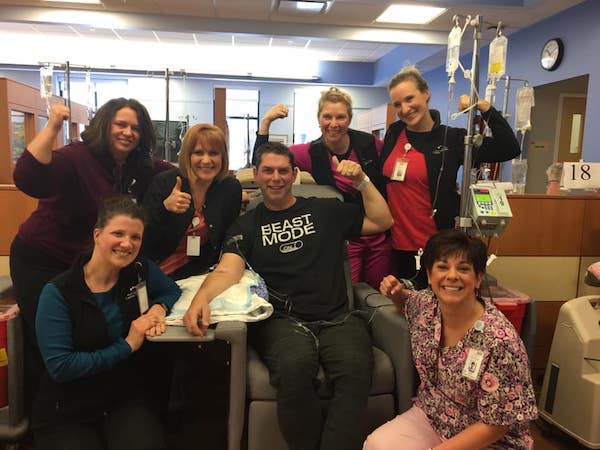
Even when he had needed a second liver resection in May 2019 or when he had yet another recurrence in his liver that summer. He also had multiple small tumors in his peritoneum. At that point, he and his treatment team opted for a different approach. Immunotherapy. Scientists now have a better understanding of how cancer cells interact with the immune system and have identified immune-boosting treatments for specific types of cancers. Trevor is among the five percent of people with Stage IV colorectal cancer whose tumor is MSI-high, which is very responsive to immunotherapy. He started treatments on August 30, 2019, and goes every three weeks to New England Cancer Specialists for an infusion. A recent scan showed that for the first time in two years, his disease is stable. Also for the first time, he has a realistic hope that he can remain in remission.
It was in the fall of 2019 after he started immunotherapy and began to feel better mentally as well as physically that Trevor decided he wanted to share his story.
I did a column for the Press Herald and I started doing columns for Colontown and I began blogging. I started being an advocate and communicating about colorectal cancer. And then my wife began pushing me to do something for men. When I did, the response was immediately overwhelming.
Trevor
On January 1, 2020, he launched a website called Man Up to Cancer, where he provides resources and other information and posts interviews he does with men who have cancer and the people who care about them. He has a public Man Up to Cancer Facebook page and a private Facebook group he calls the Howling Place. A safe place for men to howl like wolves. The wolf has become an important symbol.
I had been reading about wolves and I learned that there is no such thing as a lone wolf. It’s not how they behave — they are collaborative and caring. If one wolf is sick or injured, the others do not just let that wolf off the back of the pack. Other strong wolves go and help that wolf. And if that wolf dies, they mourn their death. To me, this is what we need to do for each other. When I decided to do the Facebook group I called it the Howling Place or the Wolf Pack. It’s a place where men can howl about their disease or talk about life or whatever else is going on because this is what we need. I didn’t know what would happen. Joe Bullock, a rectal cancer survivor from North Carolina I knew through Colontown was the first to join. He told me his mission was to bring guys into the group and within the first two weeks he brought in 200. Now we have nearly twice that from around the world.
Trevor
He’s also writing a book — Man Up to Cancer — and wants to start a podcast. Hard to believe that less than a year ago, Trevor Maxwell was so depressed he could hardly communicate with his wife and daughters. They are the ones who nurtured him along to this point where he not only has lifted himself up but is doing the same for other men.
To be able to do this project is only because they were the key to getting me through my darkest time. I could never imagine doing a project like this back then, I couldn’t even make a phone call. Through their love and continued support we’re now changing lives.
Trevor
The challenge is if you reach rock bottom, as Trevor did, you may think you don’t have a choice. With his family’s support, he came to realize that he did have a choice. He could get the help he needed to get out of the hole or he could just stay there.
The problem with staying in your cave is that cancer is not a solo gig. If you choose to isolate and don’t accept help and don’t get the support you need, your relationships suffer and your mental health continues to suffer. There’s no way for you to get out of that mental health hole on your own.
Trevor
And so, Trevor Maxwell has climbed out of his own dark place and is now extending his hand and his heart to all the men he knows are out there. Men who have cancer who feel depressed, isolated, and vulnerable but for whatever reasons, believe that it’s not ok to let down their guard and ask for help. That they are supposed to man up to cancer.
When people hear the phrase man up they think it means toughen up, don’t be a burden. Wy whole point is, yes, to go through cancer as a man, you’re going to need to be tough, that’s part of it, for sure. But for me, manning up means being strong enough to say that you need help, getting help, and going through this together and not alone. So I kind of use the man up phrase to draw people in and then immediately show them this might not mean what you think it means. I just want to reach them and let them know that we have their backs. And I want invite them to join our movement.
Trevor Maxwell, Founder, Man Up to Cancer

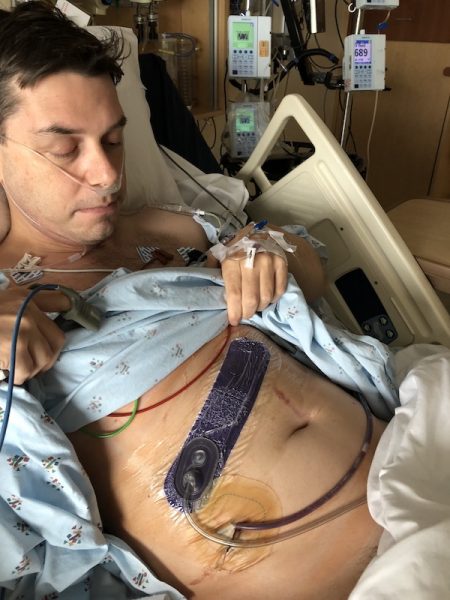
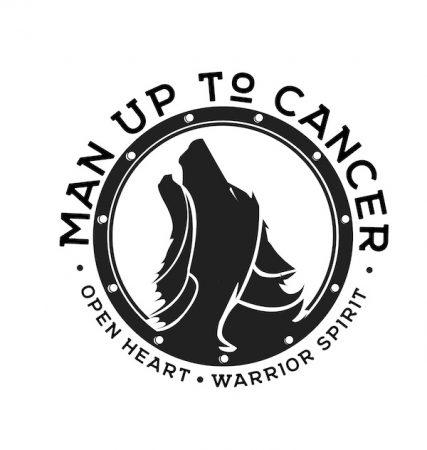
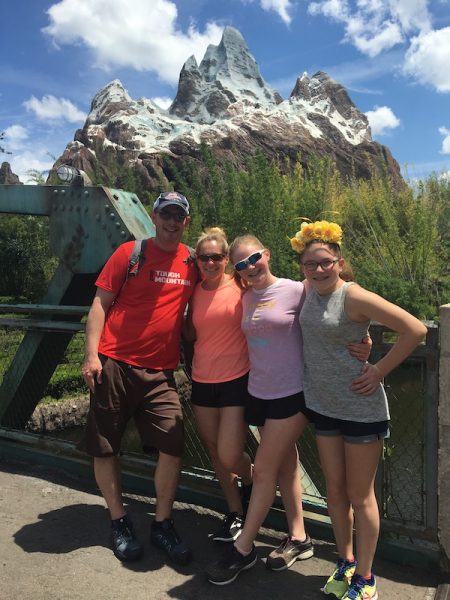
Leave A Comment